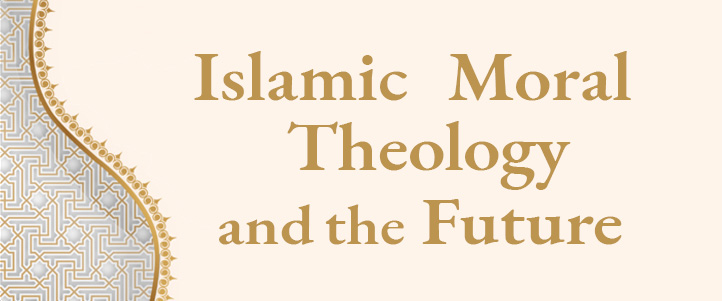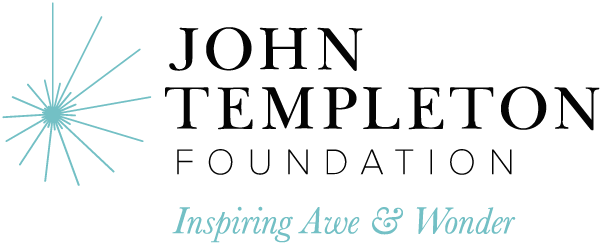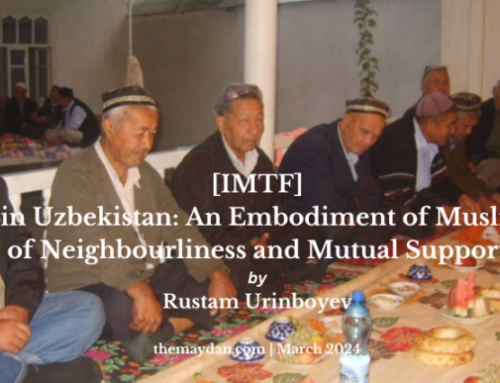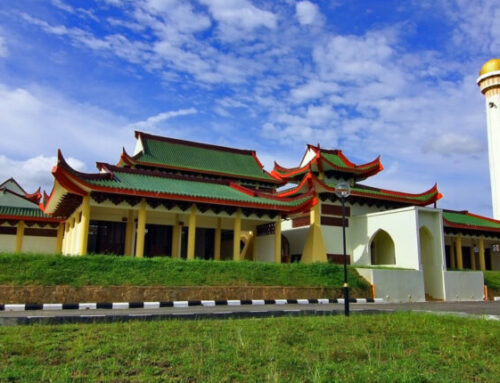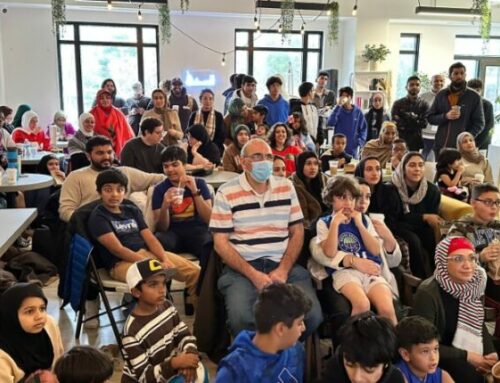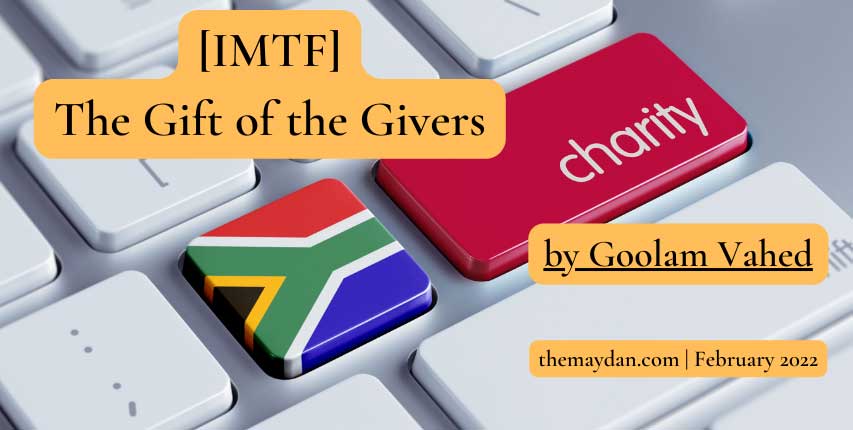
The Gift of the Givers
Three centuries of white minority rule in South Africa has left the African majority materially and psychologically impoverished. A record of mismanagement and widespread corruption have resulted in the state’s failure to meet the needs of the poor, while service delivery protests, gender-based violence, racism, and xenophobia are a feature of daily life. With unemployment spiralling to 46.6% by the third quarter of 2021,[1] many South Africans are reduced to what Italian philosopher Giorgio Agamben called ‘bare life.’ However, ‘bare life’ cannot capture the degradation and desperation in a country with one of the highest levels of inequality in the world as measured by the World Bank’s Gini coefficient.[2]
The state, treating the poor in post-apartheid South Africa as customers rather than as people with rights to essential services, has turned to the market to solve its problems. It is from out of this challenging economic environment that the relief organization The Gift of the Givers (GOG) and its founder Dr. Imtiaz Sooliman have emerged to capture the imagination of many in the country. Indeed, they have become household names in South Africa. Prior to the COVID-19 pandemic, GOG regularly made headlines in its international efforts to bring relief to various parts of the world, including war-torn Bosnia and Syria as well as Haiti and Bangladesh, which were struck by an earthquake and cyclone respectively.
]It is from out of this challenging economic environment that the relief organization The Gift of the Givers (GOG) and its founder Dr. Imtiaz Sooliman have emerged to capture the imagination of many in the country. Indeed, they have become household names in South Africa.
Since the pandemic, GOG has become more home-oriented in compliance with prevailing COVID-19 policies and protocols. Nonetheless, one only has to listen to callers on national radio stations to realize GOG’s reach into the public imagination. The organization’s founder regularly receives honors ranging from being the standing candidate running for the president of South Africa to being nominated for the Nobel Peace Prize. Through 2020 and 2021, GOG provided water to tens of thousands of drought-stricken people, joined with the government in drilling boreholes across the Eastern Cape, refurbished hospital wards, provided CPAP (Continuous Positive Air Pressure) oxygen machines to hospitals and personal protective equipment for healthcare workers, and donated food packs, hygiene packs and blankets to poor residents in many parts of the country.
A functioning government should ordinarily provide these services. However, with so many government officials mired in corruption, residents, farmers, and healthcare leaders regularly contact GOG for assistance. Moreover, with the growing commodification of essential services, the hollowing out of public health facilities, and the absence of reliable public transportation, GOG has come to represent a different set of ethics, values, and way of living put into action.
Religious Foundations
The organization’s name, the Gift of the Givers, is intended to underscore giving over receiving. True to its name, GOG aims to undertake its work with an eye toward anonymity in order to preserve the dignity of its recipients. Dr. Sooliman has stated on numerous occasions that the inspiration for GOG lies in the fundamentals of Islam. Life should not be reduced to pre-paid electricity and water cards. Rather, for him, Islam stands as the much needed counter to materialism, extravagant consumption, and making money – ‘Mammon’. His commitment to sharing extends beyond Muslims alone. In a country where Muslims make up barely 3% of the population, more than 90% of GOG’s relief work is targeted at non-Muslims. This is important in a context where Islam is all too often labelled as insular and sectarian.
“Dr. Sooliman has stated on numerous occasions that the inspiration for GOG lies in the fundamentals of Islam. Life should not be reduced to pre-paid electricity and water cards. Rather, for him, Islam stands as the much needed counter to materialism, extravagant consumption, and making money – ‘Mammon'”
Dr. Sooliman was named the South African Person of the Year by the Daily Maverick newspaper for 2021 “in recognition of the outstanding work his organization has done helping people here at home and around the world.”[3] It is the latest in a string of awards acknowledging his philanthropic work over the past three decades. In declaring Sooliman Social Justice Champion for 2021, the Law Trust Chair at Stellenbosch University stated that he had “moved the needle consistently to advance equality and reduce poverty,… has shown a commitment to justice as justice for all, while galvanizing others to pull together in a socially cohesive manner.” During the Friday Jumuah prayer at the Masjidul Quds in Cape Town on 24 December 2021, the Imam asked Dr. Sooliman what these awards meant to him. He told the congregants to reflect on the fact that “this vote came from across cultures, across religions, across people who don’t have any faith too. What do I symbolize? I stand for spirituality, for Islam, for service to human beings….” Muslims, he added, should reciprocate because “respecting culture is part of Islamic teaching. We come from a mixed society, and the Prophet (peace be upon him) stressed building relations with everyone.” His Sufi Shaykh, he said, implored him to serve “unconditionally people of all races, of all religions, all colors, all classes, all cultures, of any geographical location, and any political affiliation…. We have an open heart towards all people.”[4]
While born out of a particular faith conviction, GOG rises above its religious specifity and strikes deeply into the heart of everyday South Africans. South Africa is a country in desperate need of “ethical doers”. If GOG’s mission is anything, it is anti-poverty and anti-suffering. Many Islamic theologians accept poverty as a test of people’s allegiance to God. For instance, some take verse Q. 2:155, Surely We will test you with fear and hunger, and loss in wealth and lives and fruit, and give good tidings to the patient” as support of this. Dr. Sooliman, in contrast, has shown through his actions and statements over the years that he considers poverty to be harmful and has strove relentlessly to improve people’s circumstances.
While born out of a particular faith conviction, GOG rises above its religious specifity and strikes deeply into the heart of everyday South Africans.
The Founder
The GOG is one of the most high profile Non-Governmental Organizations (NGOs) in present-day South Africa. Its founder Dr. Imtiaz Sooliman was born in Potchefstroom in the North-West province in 1962. He matriculated from the Sastri College in Durban in 1978 and qualified as a medical doctor at the University of Natal Medical School (now Nelson R. Mandela School of Medicine) in 1984, the year he lost his mother Farida, a popular radio personality, to breast cancer. In addition to this Islamic upbringing, the 1980s was a time of heightened anti-apartheid activism and political violence in South Africa, which awakened many students’ social and political consciousness.
While Sooliman involved himself in social welfare initiatives at an early age, the Gulf War in 1990 was critical in shaping his commitment to humanitarian aid. During the war, he helped form the Gulf War Relief Fund, which solicited material support for victims of the war. He subsequently assisted the African Muslim Agency (AMA) to rescue a hospital project in Nkala in Northern Mozambique. He responded under the banner of the Islamic Relief Agency (ISRA) to provide aid to Bangladesh when a cyclone struck the country in 1991, the most severe in its history.
What proved life-changing was Dr. Sooliman’s meeting with Shaykh Saffer Effendi al-Jerrahi in Turkey in August 1991. Dr. Sooliman was astonished to find “people of all colours, races and religious beliefs” in attendance. The Sufi master’s key message was that “Mankind is one single nation [and] the best among people are those who benefit mankind unconditionally”.’[5] According to Dr. Sooliman, Shaykh Effendi instructed him to form the Gift of the Givers organization during a visit on 6 August 1992: “It was my second meeting with him. He said that ‘we will form an organization whose name will be the Gift of the Givers in English – Waqful Waqifin. This will be your job for the rest of your life.’ The emphasis was on the words ‘benefit mankind’, not Muslim …. and he told me ‘don’t expect anything in return, not even gratitude.”[6] Dr. Sooliman returned to South Africa to fulfill these instructions, combining the spiritual and the humanitarian into organizational form. Having started in his Pietermaritzburg home, GOG is now arguably the largest private humanitarian disaster relief organization in Africa.
The Gift of the Givers in Its South African Context
Addressing poverty is a central concern for Dr. Sooliman, who has advocated for Muslims to reach across religious and racial lines to this end. He has argued that it is imperative for Muslims to work with like-minded people of all faiths and backgrounds to achieve a sustainable future based on sound ethical conduct. This perspective has been met with resistance from more conservative segments of the Muslim community in South Africa who are increasingly seeking to create a parallel Muslim society. They shun contact with non-Muslims as much as is possible. Dr. Sooliman, for example, was accused of being a “murtadd” (apostate) for participating in a multi-faith prayer for a Christian South African who was kidnapped in Yemen, allegedly by Al-Qaeda.[7] Dr. Sooliman’s answer to those who look upon his actions as being outside the boundaries of Islamic life would likely be that GOG is a living example of what the faith preaches and is more faithful to the precepts of Islam than those who look inward, wanting to settle theological issues rather than sociological problems.
“In some quarters, GOG has also come under fire for its international relief efforts since ‘charity begins at home’. Dr. Sooliman has pushed back against this critique.“
In some quarters, GOG has also come under fire for its international relief efforts since ‘charity begins at home’. Dr. Sooliman has pushed back against this critique. For him, Islam is a religion of the world whereas nationalism is human-made. Likewise, GOG is a relief organization of the world and for it. GOG has a global reach even though its primary source of funding is in South Africa, and its central focus is in Southern Africa. Dr. Sooliman began his mission as a Muslim and relied mainly on fundraising among Muslims in the early years. Today GOG receives aid from private individuals of all denominations as well as South African based multinational corporations. “Givers” believe that their money is spent prudently and accounted for and that GOG’s activities are in line with their values.
GOG’s success is also due to the large number of mainly Muslim volunteers who offer their services gratis. GOG “bears witness” not through public statements but through its very public work in responding to everyday crises. While we are living in a world with reduced human-to-human interaction, Dr. Sooliman remains a firm advocate of having bodies on the ground. As he put it, “all over the world, our doctors and engineers are praised not only because they are highly skilled but because they show such heart, passion and commitment. Victims are amazed how our teams touch them, hug them and show them so much compassion.”[8]
It has been carefully threading a tightrope; its secular stance sometimes hurts its ability to fundraise within the Muslim community, while emphasizing its “Muslimness” may impact its ability to raise funds in the larger non-Muslim society.
GOG has fared relatively well despite competition for zakat (obligatory charity) from other Muslim aid organizations and the economic downturn in South Africa. It has been carefully threading a tightrope; its secular stance sometimes hurts its ability to fundraise within the Muslim community, while emphasizing its “Muslimness” may impact its ability to raise funds in the larger non-Muslim society. Despite these challenges, GOG continues to benefit from both of these cultures of charity to the advantage of many.
Starting as a small organization based in the home of its founder, GOG has developed a reputation for delivering instant and effective assistance both domestically and internationally. The work of GOG, its volunteers, and donors suggest that religion can generate social capital and that religious motivation can provide an engaged sense of civic rights and responsibilities and motivate citizens to participate in activities aimed at the collective good. GOG’s experience underscores the strength of networks that cross ethnic, racial, class, and religious lines.
Goolam Vahed is a Professor in the Department of History, University of KwaZulu-Natal. He completed his undergraduate research at the University of Durban-Westville, and his Masters and Doctoral degrees at Indiana University, Bloomington. His research interests include identity formation, citizenship, ethnicity, Islam, and transnationalism among Indian South Africans. He has published numerous books as well as articles in peer-reviewed journals. His most recent (co-authored) books include A History of the Present. A Biography of Indian South Africans 1994–2019 (Oxford, 2019) and Colour, Class, and Community. The Natal Indian Congress and the Struggle to Defeat Apartheid 1971-1994 (Wits 2021).
[1] This is according to the expanded definition of unemployment which includes people who were available for work but not looking for a job. The figure for those actively looking for work, according to Statistics South Africa, was 34.4%. Prinesha Naidoo, ‘South Africa’s unemployment rate is now highest in the world,’ Bloomberg, 24 August 2021. https://www.bloomberg.com/news/articles/2021-08-24/south-african-unemployment-rate-rises-to-highest-in-the-world. Accessed 15 February 2022.
[2] The Gini coefficient is a number that represents (in)equality in a country, with 0 indicating absolute equal distribution of wealth and 1 representing absolute inequality. According to World Bank estimates, South Africa’s Gini coefficient increased from 57.6 in 1994 to 63 in 2014.
[3]Daily Maverick tweet, 20 December 2021. https://twitter.com/dailymaverick/status/1473019815522623488. Accessed 23 January 2022.
[4] Acceptance Speach – Dr Imtiaz Sooliman – South African Person of the Year, YouTube, 24 December 2021. https://www.youtube.com/watch?v=z8RYpwZgsrM. Accessed 8 February 2022.
[5] Z. May, ‘We must live up to our image’, Herald Times, 2 August 2018. https://www.heraldlive.co.za/news/2018-08-02-we-must-live-up-to-our-image/. Accessed 22 January 2022.
[6] A message to young people in SA – Speech by Dr Imtiaz Sooliman, YouTube, 7 September 2017. https://www.youtube.com/watch?v=_-oBOHqbrvA. Accessed 1 February 2022.
[7] ‘The Kufr of the Murtadds,’ The Majlis, Vol. 22, No. 7 (2013): 3. http://www.themajlis.info/cc/downloads/VOL22NO07.pdf.
[8] 21 Icons South Africa. Capturing human achievement through
photography, film and narratives. ‘Profile of an Icon: Imtiaz Sooliman,’ http://21icons.com/dr-imtiaz-sooliman/. Accessed 15 February 2022.

